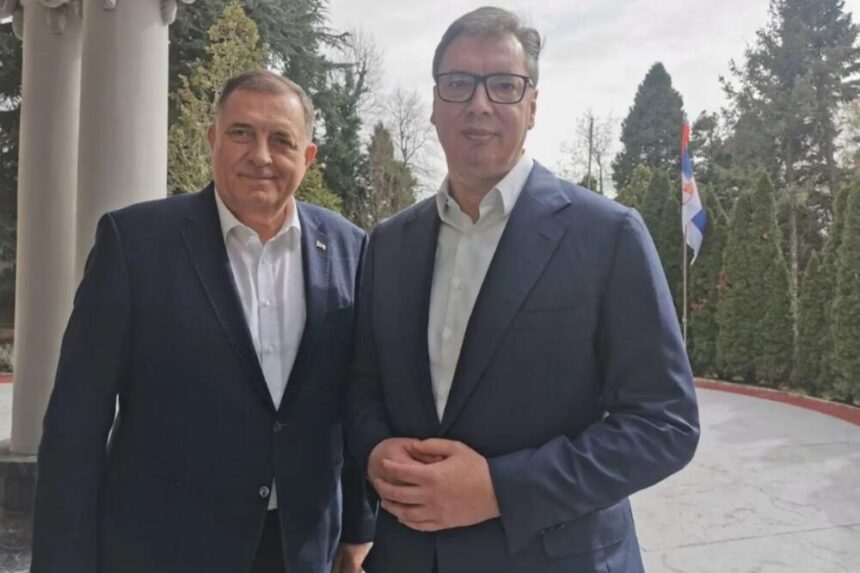Serbian President Aleksandar Vučić and former Republika Srpska President Milorad Dodik have intensified efforts to engage former U.S. President Donald Trump, in what analysts describe as a largely symbolic and politically risky strategy, reports Montenegrin media Vijesti.
Vučić has reportedly pursued dialogue with Trump for months, following a controversial Florida visit in May, which ended abruptly due to “chest pains.” The Serbian government frames these efforts as part of a strategic dialogue aimed at restoring Serbia–U.S. relations, including a meeting between Serbian Foreign Minister Marko Đurić and U.S. Secretary of State Mark Rubio in early August—an encounter largely ignored by U.S. officials.
Dodik similarly seeks a meeting with Trump, claiming his recent political ouster was a preventive measure against such engagement. Recent moves, including a proposal to award Trump the Nobel Peace Prize, illustrate the leaders’ attempts to secure American support amid regional political uncertainty.
Analysts caution that both Vučić and Dodik overestimate Trump’s ideological alignment, seeing him as a protector of autocracy and a counterbalance to European liberal-democratic pressures. Boško Jakšić, foreign policy commentator, notes that Trump is primarily pragmatic and business-oriented, limiting the strategic gains Serbia could achieve.
Historical precedent and diplomatic experts, including Milan St. Protić, suggest that these pursuits are more symbolic than substantive, potentially undermining Serbia’s credibility. Efforts to curry favor with Trump have included strengthening military ties with Israel, including a $1.64 billion arms purchase—moves analysts warn could entangle Serbia in regional conflicts and reputational risks.
The broader consequence, according to experts, is an increasingly visible disregard for Europe, as Vučić and Dodik appear to rely on American support over democratic and regional institutions, a strategy described as short-sighted and politically dangerous.
“Not only geographically, but morally and politically, Europe remains Serbia’s key environment. Ignoring it for short-term gains with the U.S. carries high costs,” Jakšić said.







